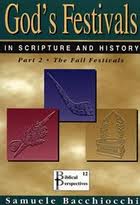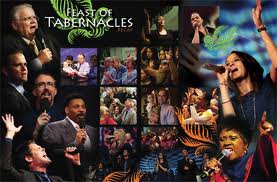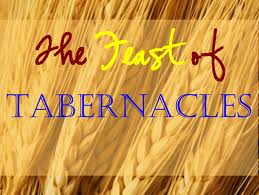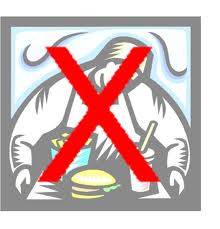 To continue the series on the feasts of Leviticus 23 that I started last year I thought I would begin by repeat a post from last year.
To continue the series on the feasts of Leviticus 23 that I started last year I thought I would begin by repeat a post from last year.
Not eating food for a period of time for meditative or religious reasons goes way back in history. Most cultures do it. Looking at my waist, I can see that this is not a common practice here in America.
Jesus was criticized because his disciples did not fast in the prescribed manner of the Pharisees, twice in the week, in fact. Here is what he said (Mat 9):
14 Then John’s disciples came and asked him, “How is it that we and the Pharisees fast often, but your disciples do not fast?”
15 Jesus answered, “How can the guests of the bridegroom mourn while he is with them? The time will come when the bridegroom will be taken from them; then they will fast.
The point here is that Jesus expects his disciples to fast after his departure. Do you fast?
Matt 6 tells us this:
16 “When you fast, do not look somber as the hypocrites do, for they disfigure their faces to show others they are fasting. Truly I tell you, they have received their reward in full. 17 But when you fast, put oil on your head and wash your face, 18 so that it will not be obvious to others that you are fasting, but only to your Father, who is unseen; and your Father, who sees what is done in secret, will reward you.
Jesus did not say: "If you fast." He said: "When you fast." Do you fast?
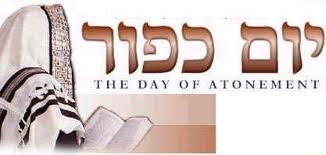 Tomorrow is the Day of Atonement (Yom Kippur). Leviticus 23 tells us:
Tomorrow is the Day of Atonement (Yom Kippur). Leviticus 23 tells us:
26 The LORD said to Moses, 27 “The tenth day of this seventh month is the Day of Atonement. Hold a sacred assembly and deny yourselves, and present a food offering to the LORD. 28Do not do any work on that day, because it is the Day of Atonement, when atonement is made for you before the LORD your God. 29 Those who do not deny themselves on that day must be cut off from their people. 30 I will destroy from among their people anyone who does any work on that day. 31 You shall do no work at all. This is to be a lasting ordinance for the generations to come, wherever you live. 32 It is a day of sabbath rest for you, and you must deny yourselves. From the evening of the ninth day of the month until the following evening you are to observe your sabbath.”
The phrase “deny yourself” is idiomatic and refers to fasting.
So Jesus said his disciples would fast after he had departed. Leviticus 23 tells us that tomorrow is a day of fasting. Do you fast? If not tomorrow, when?
(There are obviously people who should not fast due to medical reasons. Looking back over my "religious life," I can see that common sense was sometimes lacking. I suggest you use common sense on the issue of fasting.)
 Sunday, September 30, 2012 at 5:02AM
Sunday, September 30, 2012 at 5:02AM 